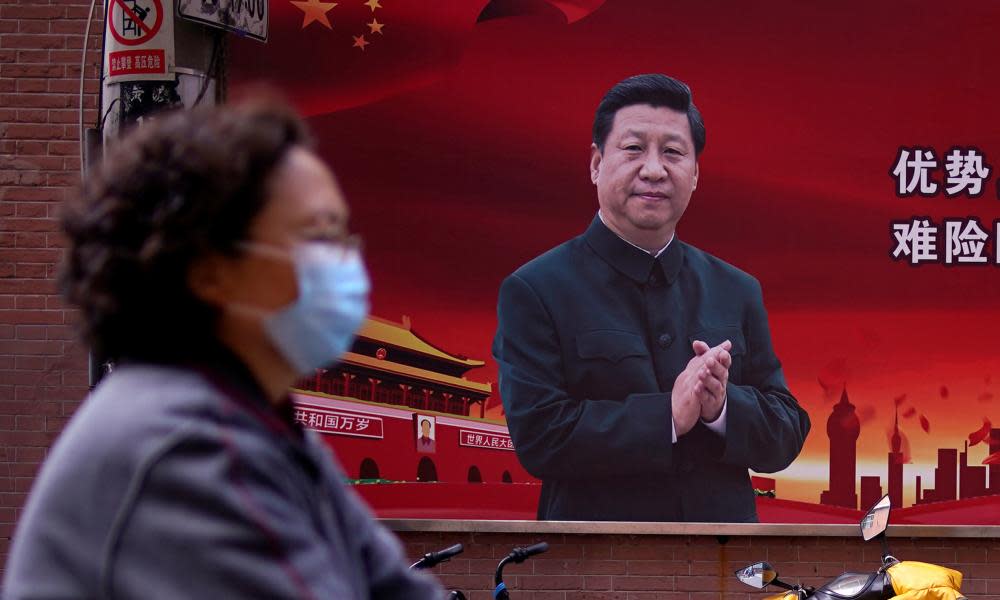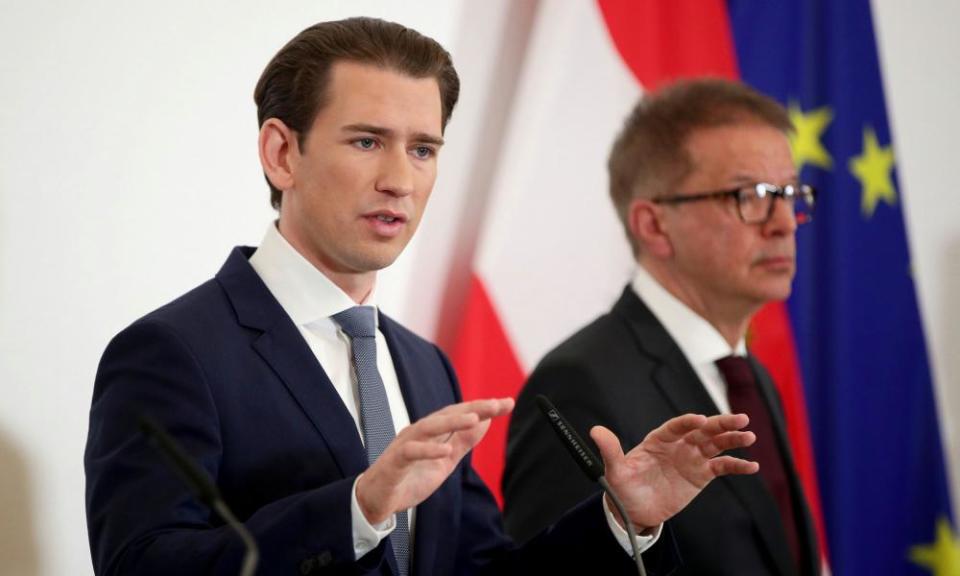Covid-19 is exposing the frailty in autocrats and democrats alike

Confronted by the coronavirus menace, politicians and governments around the world are thrashing about wildly, trying to decide what to do for the best. “Politics isn’t working” is a common refrain among disaffected citizens in the modern era. But at this uniquely stressful moment, it really does appear to be true. While they mean well, most leaders haven’t got a clue.
The dawning realisation that national politicians cannot be relied upon to do the right or sensible thing, whatever that may turn out to be, has serious long-term implications for democracy and the principle of democratic consent. If the crisis is protracted, a catastrophic loss of confidence in the way the pandemic is managed could lead to unpredictable social disruption across many countries.
As is the case with victims of the disease, underlying conditions and vulnerabilities in politics too are being painfully exposed.
It’s becoming clear, for example, that healthcare systems, even in wealthy countries such as the US, are chronically under-resourced and unprepared. Confusion reigns widely, fuelled by conflicting official advice in different countries about public gatherings, travel, and self-isolation.
Some leaders may emerge with their reputations enhanced. For others, the opposite holds true. The virus has already made fools of the world’s two most powerful men. Xi Jinping, China’s president, has faced unprecedented criticism over his handling of the first recorded outbreak in Wuhan. He initially steered well clear of the problem – an early example of social distancing.
But Xi has struggled since to contain the political and human fallout. The death from Covid-19 of Li Wenliang, a young doctor who sounded the alarm in Wuhan in December but was gagged by Communist party officials, sparked an online revolt. Xi finally ventured to the city last week, lavishing praise on its beleaguered residents in what almost sounded like an apology.
Predictably, Donald Trump’s reaction has been all about him. Among other inanities, he suggested the pandemic was a fake Democrat plot to harm his re-election chances. Ignoring the science and minimising the threat, he claimed his Mexican border wall had somehow immunised Americans, and likened the “foreign virus” to an alien invasion. It’s embarrassingly obvious Trump is not up to the job.
Both Trump and Xi could pay a heavy price. The US leader may have survived impeachment, but come November many voters will not forget or forgive this failure of leadership in a crisis. Xi’s aura of paternal infallibility has shattered. Trust has gone. To restore his grip, it is suggested, he may resort to more intrusive social controls, surveillance and censorship. Yet increased repression could prompt a career-ending backlash.
Trump’s knee-jerk reaction in pulling up the drawbridge and blaming others is not unique. Fear not facts has led European leaders such as Austria’s Sebastian Kurz to act alone, hastily closing borders and barring people from specific countries. These divisions recall Europe’s chaotic response to the 2015 migrant crisis when governments failed to agree a collective approach.

For the European Union, the pandemic is turning into a political nightmare. The commission in Brussels is struggling to keep up, relaxing rules on deficit spending that have already been broken. Piecemeal, national-level policy-making is a gift to Eurosceptics, not least rightwing populists keen to exploit splits, and could have lasting consequences for European cohesion. Public confidence may take a big hit.
There’s no doubt politicians face genuine dilemmas. In Italy, Europe’s worst-affected state, the prime minister, Giuseppe Conte, was initially attacked for doing too much, by ordering widespread testing in Lombardy, and subsequently for doing too little. What is certain is that Italy has received little help from the rest of Europe – the subject of a bitter complaint last week.
Now that Italy is in total lockdown, it is being studied like a laboratory guinea pig. Boris Johnson, aware, like other leaders, that his reputation is at stake, treads a fine line between similarly drastic measures and “keep calm and carry on” stoicism. If it all goes wrong, his defence will be that he followed medical advice. Suddenly, experts are back on top in Britain – if only as potential fall guys.
Many look for leadership to Angela Merkel, Germany’s unflappable chancellor and Europe’s most respected politician. Yet her assessment last week, that Covid-19 would infect two out of three Germans and there was not a lot governments could do about it, was less than reassuring.
Merkel called for “solidarity, common sense and open-heartedness”. But her emphasis on Europe-wide cooperation carried a whiff of hypocrisy. Germany and France have limited exports of protective masks and equipment to safeguard domestic supply – hardly an act of solidarity with the neighbours. Nor is Berlin rushing to bail out floundering eurozone partners.
Looked at globally, the politicians’ performance to date has been mostly unimpressive
The parallel absence of an effective, joined-up global strategy is also casting multilateral institutions in an unflattering light. The World Health Organization, the lead UN agency that might be expected to wield decisive influence, appears strangely diffident at times – fearful, perhaps, of provoking a political backlash from heavy-hitters such as China.
Global financial institutions are not doing any better. The IMF has thrown $50bn at the problem. Interest rates have been randomly cut and emergency budgets announced. But compared with the 2008 financial crisis, when governments and central banks collaborated to stave off a banking collapse, international coordination to calm markets and reduce risk is lacking. Virus-related economic damage may thus be worse, and longer lasting, than might have been the case.
Despite all the angst, the WHO’s chief, Tedros Adhanom Ghebreyesus, complained about “alarming levels of inaction” by politicians – and it seems many governments remain in denial. That may be due to vanity (in the case of North Korea’s defiantly face-mask-free Kim Jong-un) or incapacity (in the case of poorer countries). Iran repeatedly denied it had a problem, until its leaders started dying. Now it is reportedly digging mass graves.
Unscrupulous politicians stand accused of using the pandemic as cover for furtive power-grabs. The timing of last week’s high-level purge by Saudi Arabia’s crown prince, Mohammed bin Salman, and a constitutional coup by Russia’s president, Vladimir Putin, may be coincidental. Or maybe not.
In Israel, Benjamin Netanyahu is manoeuvring to stay on as prime minister, despite his corruption trial and his lack of a parliamentary majority, in the face of what he now deems an exceptional national threat. It’s conceivable Trump could use new clashes with militia in Iraq to revive his Iran vendetta – and distract attention from his viral incompetence.
The crisis also raises the danger of governments taking so-called temporary emergency powers and imposing sweeping, illiberal constraints on citizens, journalists and social media that subsequently become permanent. That’s what happened after the 9/11 convulsion, when the US and allies decided to largely ignore international human rights protections in the name of fighting terrorism.
Looked at globally, the politicians’ performance to date has been mostly unimpressive. Yet the fundamental question raised by the pandemic is not one solely for them. It concerns each individual, community, and nation. Will the challenges posed by the virus be allowed to drive us further apart – or used to help bring us closer together? The answer hangs in the balance. It could go either way.

 Yahoo News
Yahoo News 
